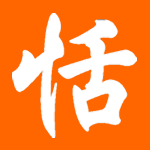to: tiangotlost@gmail.com
date: Fri, Oct 23, 2009 at 7:50 AM
subject: Submission
Hi there.
One of my friends posted this on Facebook and claims it says "william beloved son", is this accurate?
http://imgur.com/iU0i7.jpg
Thanks :) love the blog
This is another case of Chinese-Japanese mismatch.
威廉 is Chinese phonetic transliteration of "William", however 愛息 is translated as "love [to] rest" when read as Chinese.


Not only that, but 愛息 in Japanese is used only to refer to someone else's son. I can only assume that "William" is (or was) the son of the man with the tattoo, and if so, 愛息 is completely inappropriate as a way to refer to the man's own son.
ReplyDeleteOn the plus side, a Japanese person would not know what 威廉 is supposed to mean, so they probably would not even guess that 愛息 is Japanese.
-Alan
Also, in either language, it would seem to present a word order problem.
ReplyDeletePity, because the quality of calligraphy here is far better than the average Hanzi Smatter tattoo.
愛息 sounds pretty archaic to my ears. I don't think I've ever seen it "in the wild." Also the word order should be reversed for Japanese: 愛息ウィリアム
ReplyDeleteBut at least the characters themselves look nice.
I love the blog! I'm also really glad that Tian knows both Chinese and Japanese - sounds like there's a lot of confusion between the two as far as tattoo artists go! And I agree - the characters do look nice. traditional > simplified mwahahaha
ReplyDelete"William Beloved Son"??? Isn't that weird in English too?
ReplyDeleteShouldn't it be:
(My) Beloved Son William
or
William, Beloved Son (you can express the break with a comma or slash or extra space, a line break or whatever)
but it was left in this awkward semi-sentence phrase that sounds weird in English. And so it's no surprise that mis-translated with all the words stuck together ends up forming the one sentence "William loves to rest".